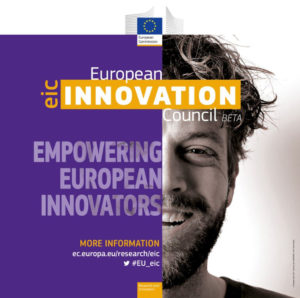“We are creating possibly the biggest deeptech equity fund in Europe.”
Origen: Launching Europe’s “unicorn factory” | Sifted

…a €10bn war chest, run by the European Innovation Council (EIC), to back his plans.
“The EIC should become Europe’s unicorn factory,” he tells Sifted in an interview. “We are creating possibly the biggest deeptech equity fund in Europe.”
The EIC has already committed €1.5bn to a pilot investment programme and will soon announce the first cohort of 50 to 60 companies it is backing.
…the EIC fund, to be run by an executive agency separate from the commission and based in Luxembourg alongside the European Investment Bank, will focus on deeptech innovation.
The EIC’s goal is to focus on the riskiest research and development and scaleup stages to help European startups survive the notorious “valley of death”. Most of the €10bn will be allocated as grant money, typically in bite-sized packets of €1m to €4m, but about 35% will be invested as equity finance.
“The EIC is creating a deal flow in Europe. I hope funds will want to co-invest with us,” he says. “Deeptech innovation is so difficult because the funds don’t have the expertise to assess it. But we have the best experts. By funding researchers with grants we see serious stuff emerging. That is unique.”
In total the commission will invest up to €100bn over the next seven years as part of the Horizon Europe programme to sharpen the economy’s competitiveness.
The commission’s approach has been much influenced by the work of Mariana Mazzucato, the director of UCL’s Institute for Innovation and Public Purpose, author of The Entrepreneurial State and evangelist for mission-driven, public sector innovation. Her argument is that governments should play a far more active role in helping to create and shape markets, rather than just regulating them.
To that end, the EU has identified five such missions to support that are of direct concern to citizens:
- clean oceans,
- cancer,
- environmentally neutral cities,
- climate adaptation and
- soil health, agriculture and food.
Its main aim is to provide a positive societal impact rather than just generate a financial return.
…Some venture capital companies argue that EU funding might muddy the market, supporting too many sub-scale startups and depressing returns.
Henry Chesbrough, an innovation expert at the Haas School of Business at Berkeley University, welcomes the EU’s innovative approach. But he questions whether the funding initiative may miss opportunities outside its core missions.
